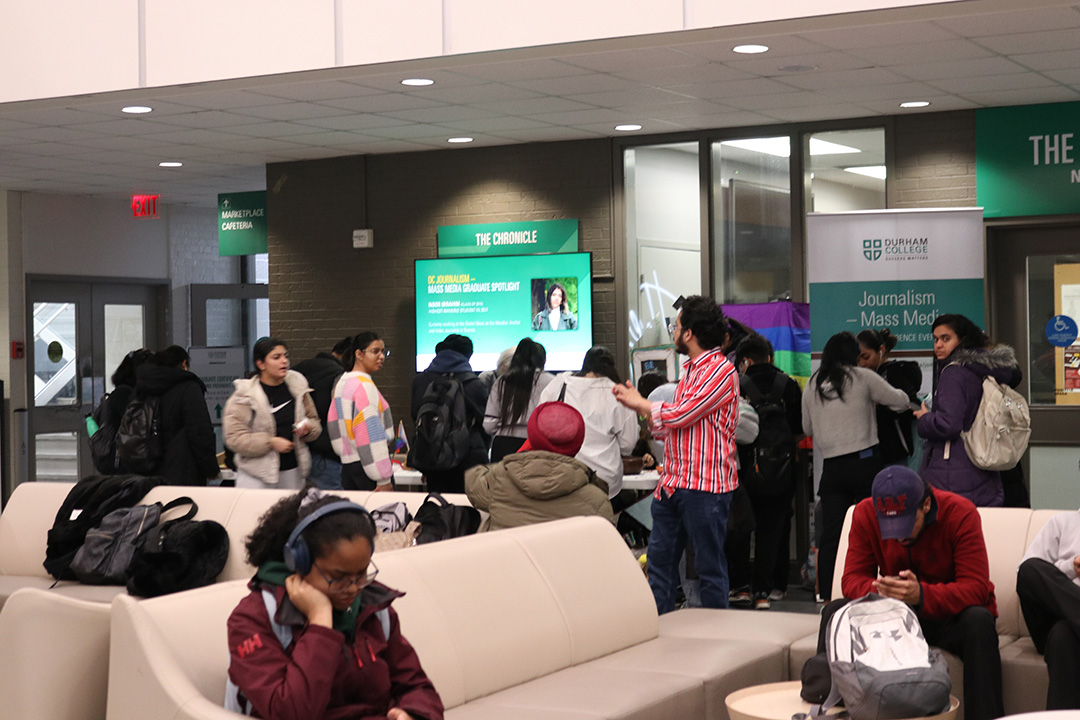For weeks now Canada has been hit back-to-back with tariffs from Donald Trump, president of the United States, leaving many Canadians furious and turning to government officials to combat this ongoing battle.
With no clear sense of what’s coming next, tariffs have become a hot topic across Canada and especially for Ontarians, as Premier Doug Ford has been one of the most vocal opponents against the measures.
Currently, the U.S. has imposed a 25 per cent tariff on non-CUSMA compliant goods which has mostly affected Canadian energy and potash. There has also been a 25 per cent tariff on steel and aluminum goods.
These measures have had ripple effects across multiple industries, hitting both exporters and small businesses alike. Earlier this month, the Canadian Federation of Independent Business reported that four in five small businesses have been impacted by the U.S.-Canada trade war, pointing to rising costs, a weaker dollar and lower demand.
Ford’s claims about wanting to end these tariffs for good, and his threats of putting counter tariffs on the U.S., have made headlines. This has led to discourse among the students and staff of Durham College.
Laryssa Blencowe, a student at Durham College, believes these tariffs are damaging not only to the Canadian economy but to our relationship with the U.S. as well. She said the relationship between the two countries may never be the same.

“When you’re creating tariffs, you’re technically creating enemies of people that you’re supposed to be friends with. We’re supposed to be friends with the United States and Trump is making an enemy of us,” said Blencowe. This is a sentiment that Ford himself has echoed in recent televised appearances.
In a March 10 televised news conference, Ford warned the U.S. that Ontario would not back down until the tariffs are fully removed, and said the province is prepared to retaliate if necessary.
“Until these tariffs are off the table, until these tariffs are gone for good, Ontario will not relent,” he said. “We will not back down. Pausing some tariffs, making last-minute exemptions – it will not cut it. We need to end the chaos once and for all.”
Concern over the tariffs is shared by much of Ontario’s business community. According to a survey by the Ontario Chamber of Commerce, “two-thirds of Ontario businesses expect to be negatively impacted by U.S. tariffs, and 80 per cent say the tariff threat has hurt their confidence in the economy.”
Ford has made it clear he’s ready to fight for Ontario and Canada. But some remain skeptical about whether he’ll follow through.
James Woodward, a staff member at the Durham College campus store, spoke about his apprehension when asked what Ford could do to take care of these tariffs.
“He’s shown some strong face right now, but I feel like he’s the type of guy to just talk a lot but not do much, so I think he really needs to stick to what he says he’s going to do, which is reciprocal tariffs or even some new tariffs of our own,” said Woodward.
The reciprocal tariffs Woodward is talking about were discussed in the March 10 press conference. Ford talked about applying a 25 per cent surcharge on all electricity imports to the U.S. but could not give reporters an estimated time frame of when he would apply this.
He instead said, “let’s just see how this rolls out, Trump changes his mind literally every single day. So, I just wouldn’t want to give you an exact date but make no mistake about it, if he continues to attack our province, our country, taking jobs, families’ paycheques, food off their table until they can’t pay rent, I will do whatever it takes to maximize the pain.”
Whether Ford follows through on these threats or not, the uncertainty has already created real impacts for Canadians. In the meantime, Woodward shared some ideas about how average Canadians can fight against these tariffs. “Keep buying local,” he said. “If you’re buying local, you’re not affected by the tariffs. Save as much as you can and think smart with your money.”




